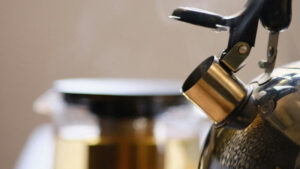
Add LED Lights To Your Travel Tea Kettle
When you think of customizing your travel tea kettle, the idea of adding LED lights probably isn’t the first thing that comes to mind. However,

Every Reisewasserkocher is a potential canvas waiting to be transformed into a piece that not only brews your favorite drinks but also showcases your personality. Whether you’re embarking on a wilderness adventure or a city escapade, a customized kettle can make all the difference.
This blog will walk you through the different materials you can use to DIY your kettle, turning it into a functional and stylish travel companion.
Choosing the right material for your Reisewasserkocher goes beyond mere aesthetics; it’s about finding the perfect balance between functionality, durability, and personal expression.
From the ruggedness of stainless steel to the lightweight charm of plastic, each material offers unique benefits that can enhance your travel experience.
Let’s explore these options in detail, helping you make an informed decision for your DIY project.
Stainless steel stands out for its exceptional durability and resistance to rust, making it an ideal choice for a travel kettle. It’s perfect for adventurers who demand reliability and longevity from their gear.

A stainless steel kettle can endure the bumps and scrapes of travel without losing its functionality or appeal.
Moreover, its excellent thermal retention capabilities ensure that your beverages maintain their temperature, be it hot or cold, for extended periods.
This material’s sleek appearance offers a timeless look, while its non-reactive nature guarantees that your drinks will taste just as they should, without any unwanted metallic flavors.
Whether you’re camping in the mountains or enjoying a morning brew in your hotel room, a stainless steel kettle can be your dependable companion.
When it comes to customization and color variety, plastic is unbeatable. This material allows for a broad range of designs, from bright and bold to subtle and sophisticated.
For travelers conscious of their luggage weight, a plastic travel kettle is a godsend, as it’s significantly lighter than its metal counterparts. However, it’s crucial to select high-quality, BPA-free plastic to ensure safety and durability.
While plastic may not offer the same level of insulation as metal, its affordability and versatility make it a popular choice for many.
Whether you’re a casual traveler or a frequent flyer, a plastic kettle can add a fun and practical element to your journey, allowing you to enjoy your favorite hot beverages anywhere, anytime.
Glass kettles are the epitome of elegance and purity. Their transparent nature not only adds a visual appeal, allowing you to watch your drink as it brews, but also ensures that there is no alteration to the taste of your water.
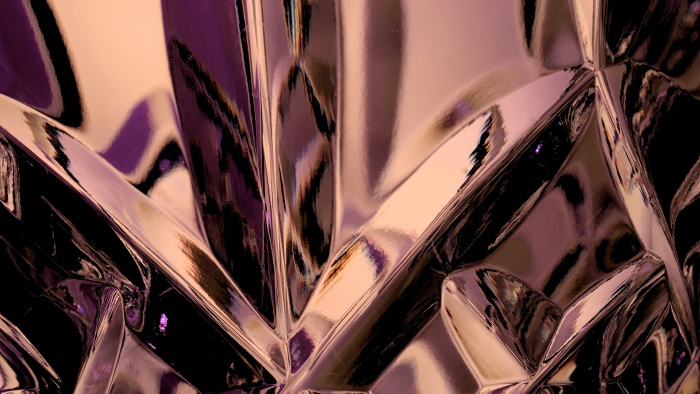
However, glass kettles require a gentle touch and careful handling, as they are more prone to breaking than other materials.
For those who prioritize the aesthetic value and taste purity of their beverages, a glass travel kettle is an excellent choice. It’s perfect for serene mornings or relaxing evenings when you can take a moment to appreciate the beauty of your drink, making every sip a luxurious experience.
Despite its fragility, a well-cared-for glass kettle can be a delightful addition to your travel essentials, combining beauty with functionality.
While stainless steel, plastic, and glass are popular choices, the world of travel kettles doesn’t end there. For those seeking something a little different, materials like aluminum, silicone, and ceramic offer unique advantages that cater to specific needs and preferences.
These options can provide innovative solutions to common travel challenges, such as space constraints or the desire for a more traditional brewing experience. Let’s delve into these materials and discover how they can enhance your travel kettle DIY project.
Aluminum is celebrated for its incredible lightness, making it an excellent choice for those who count every ounce in their travel gear. It’s particularly appealing to hikers and backpackers who need to minimize their load.
Despite its light weight, aluminum is remarkably durable and resistant to corrosion, ensuring that your travel kettle can withstand the elements and the test of time.
Its quick heat-conduction properties mean you can boil water in a fraction of the time it takes other materials, saving both time and fuel on your adventures.
However, it’s important to choose an aluminum kettle with a food-grade interior coating to prevent any interaction between the metal and your beverage.
With the right care, an aluminum kettle can be a lightweight, efficient, and reliable addition to your travel essentials.
In the realm of travel gear, silicone is a game-changer. Its flexibility allows for collapsible travel kettles that can be easily packed away, taking up minimal space in your luggage.
This feature is invaluable for travelers who operate under strict space constraints, like backpackers or those traveling with carry-on luggage only.
Food-grade silicone is heat-resistant, easy to clean, and safe for brewing, making it an excellent material for kettles.
Whether you’re staying in a hostel or camping under the stars, a silicone kettle ensures you can enjoy your hot drinks without sacrificing valuable packing space.
Its innovative design and practicality make the silicone kettle a must-have for minimalist travelers seeking convenience and efficiency.
Ceramic kettles bring a touch of home and tradition to your travels. Renowned for their excellent heat retention, ceramic kettles allow you to savor your hot drinks longer, making them perfect for leisurely mornings or relaxing evenings.
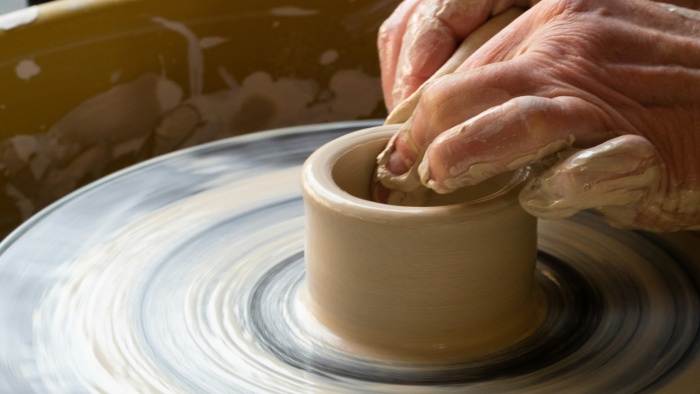
The material’s inherent insulation properties ensure that your beverage stays at the desired temperature, providing a comforting warmth in any setting. Ceramic’s non-reactive nature means that your drinks will maintain their pure taste, free from any unwanted flavors.
While ceramic kettles are heavier and require more care to prevent chipping or cracking, their aesthetic appeal and functional benefits make them a cherished choice for travelers who appreciate the finer things in life.
A ceramic travel kettle combines elegance with performance, offering a sophisticated way to enjoy your favorite beverages on the go.
Personalizing your Reisewasserkocher through DIY means selecting a material that not only suits your aesthetic preferences but also meets your practical needs.
Whether you’re drawn to the durability of stainless steel, the lightweight flexibility of plastic, the elegant transparency of glass, or the unique qualities of aluminum, silicone, or ceramic, your choice will reflect your personal style and enhance your travel experience.
By considering the advantages of each material, you can create a travel kettle that’s not just a tool for making beverages but a companion that adds joy and comfort to your journeys.
Remember, the best travel kettle is one that brings a sense of home wherever you go, making every sip a reminder of your adventures and creativity.
Can I decorate a silicone travel kettle, and if so, how?
Yes, you can decorate a silicone travel kettle, but the approach differs from rigid materials. Use heat-resistant, non-toxic markers or paints specifically designed for silicone surfaces. Stickers may not adhere well due to the flexible nature of silicone, so painting allows for more durable personalization.
Are there eco-friendly materials for DIY travel kettles?
Absolutely! Many travelers seeking sustainable options choose bamboo or recycled stainless steel for their travel kettles. Bamboo offers a renewable, biodegradable choice, while recycled stainless steel provides a durable, eco-friendly alternative. Both materials reflect a commitment to environmental responsibility.
How do I maintain the cleanliness of my DIY travel kettle, especially with decorations?
For kettles with decorations, gentle cleaning is key. Use a soft, damp cloth for daily cleaning and avoid abrasive sponges that could damage your designs. For deeper cleans, a mild soap solution can be used, followed by thorough rinsing to ensure no soap residue affects the taste of your water.
Is it possible to replace the heating element in a travel kettle?
Replacing the heating element of a travel kettle depends on the kettle’s design and construction. Some kettles have accessible elements that can be replaced with proper tools and parts. However, for many compact and sealed units, replacement might not be feasible without professional help.
How can I test the heat retention capabilities of my travel kettle material before purchasing?
To gauge the heat retention of a travel kettle material, consider conducting a simple test with a similar material container if available. Fill it with hot water, measure the temperature immediately, and then check again after a predetermined period (e.g., 1 hour). This experiment can give you a rough idea of the material’s insulating properties, though actual performance will vary based on the kettle’s design and construction.


When you think of customizing your travel tea kettle, the idea of adding LED lights probably isn’t the first thing that comes to mind. However,
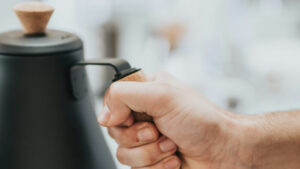
Every travel kettle enthusiast knows the pain of a lukewarm cup of tea or coffee. It’s like expecting a hug and getting a handshake. But
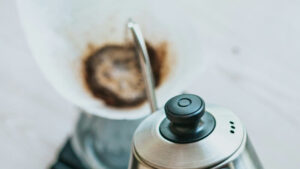
There’s something uniquely comforting about enjoying a hot cup of tea while on the road, but keeping your travel tea kettle warm and protected can

Every electric travel kettle needs a personal touch to make those morning brews even more special. Whether you’re a coffee aficionado or a tea lover,

Every travel kettle is a potential canvas waiting to be transformed into a piece that not only brews your favorite drinks but also showcases your

When you think of customizing your travel tea kettle, the idea of adding LED lights probably isn’t the first thing that comes to mind. However,

Every travel kettle enthusiast knows the pain of a lukewarm cup of tea or coffee. It’s like expecting a hug and getting a handshake. But

There’s something uniquely comforting about enjoying a hot cup of tea while on the road, but keeping your travel tea kettle warm and protected can
Copyright © 2024 brewgotravelkettle. All Rights Reserved.